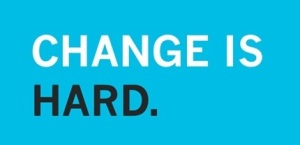I’d Rather Live With a Problem I Can’t Solve, Than Accept a Solution I Don’t Understand
Jan 23, 2014
We periodically teach classes at local universities by special invitation from the professor’s specifically related to cost accounting topics and our experience in dealing with clients and business owners who hire us to assist them with their cost accounting issues. These classes are generally an hour and a half in length and during the class we try to cover things that we think would be relevant to the students. Some of the topics we cover include: our view of how a cost accounting system should go together, as well as, a list of the 10 most common things cost accountants do wrong in working with their cost systems. We try to use recent, relevant examples on every one of our points and of course we are always actively seeking students input throughout the entire class by either questions or comments as we talk through our specific agenda.
 It seems to me at some point in every one of our classroom teaching experiences, someone in the class raises a question about how it could be true that management would continue to accept sub-optimal costing information when there are so many alternatives available today that are time and process proven. That is a relevant question and one that we think about often.
It seems to me at some point in every one of our classroom teaching experiences, someone in the class raises a question about how it could be true that management would continue to accept sub-optimal costing information when there are so many alternatives available today that are time and process proven. That is a relevant question and one that we think about often.
I can think of a number of reasons why business owners or managers accept sub-optimal costing information as part of how they do business. Many of these reasons are based on our recent experiences in dealing with owners and managers and the things that they tell us relative to significant cost revisions. Reasons like, “if I’m making money, why do I need to invest any more time or money into cost accounting improvements when what we’re doing seems to be working fine.” Another one that we hear frequently is “this costing information is acceptable as it is, there is no cost benefit to spend substantial amounts of money improving what already seems workable.” Another one we hear often, or suspect often, is “the management team either doesn’t understand the cost model enough to see the flaws or they are unwilling to try to tackle the learning curve that would be involved with starting a whole new process.”
It does come down to the old management axiom that is I would rather live with the problem I can’t solve than accept the solution I don’t understand. Most of the class members seem to understand that concept and usually that is sufficient to answer the question. However, we almost always have follow-up questions from other class members or perhaps the professor asking additional questions or making additional comments from their experience about the relevancy of our answer.
I have heard other costing consultants write about the same subject. There has been a shift in management’s perspective over the last twenty years or so relative to the investment and effort needed to develop and maintain a good cost system. Twenty years ago or earlier, such expenditures were considered a necessary part of doing business and were an ongoing process improvement related to the costing system. In recent years it is more and more common for us to find costing systems that have been allowed to go years and years out of date. Often times with not even a minor attempt to keep them current or make improvements as operations change or improved costing system theories become available. If this is true across the country, the end result is our manufacturing base in the USA is being hampered in its attempt to constantly improve efficiencies and throughput by out of date and incomplete or sub-optimal costing systems.
Categories: Cost Accounting
